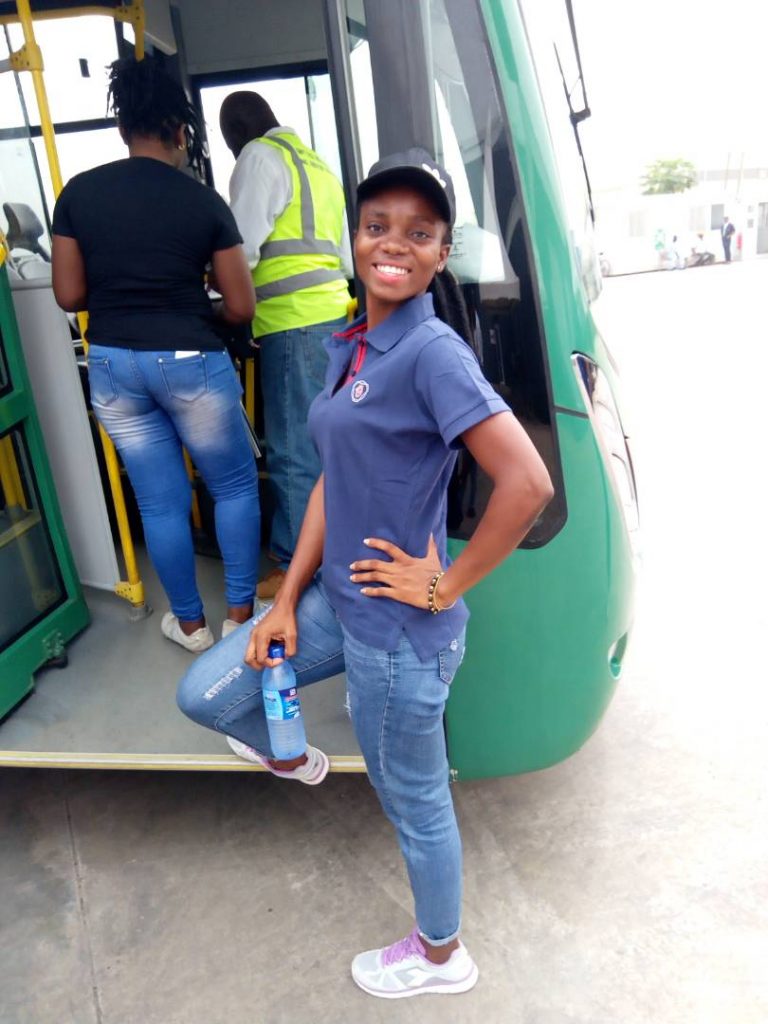Network of Women in Growth (NEWIG) was formed with the goal of improving the conditions of the less privileged in society, especially women. It does this through economic empowerment, by creating access to vocational training and providing them with a network that could act as political leverage within society. This helps them develop common political agendas and action strategies, re-group and engage in critical analysis of their lives, society and the world at large.
In 2017 NEWIG, with the support of the African Women’s Development fund, launched a new program: “Young Women-in-Professional Driving”. It’s main objective was to empower disadvantaged young women to become professional drivers and enable them to gain remunerative ‘livelihoods with dignity’.
The programme comprised three modules, spread over 4 months. Upon graduation, these young women become professional and commercial chauffeurs and are deployed in various organisations. The programme also enhances their rights awareness and also to helps them become independent and confident women, who are able to have more autonomy over their lives and their choices.
Other institutions provide technical skills as part of the training. These include the Ghana Armed Forces Mechanical Transport School (for theory and practical driving training), Army Combat School (for self-defence training), 37 Military Hospital (for first aid training) and Armed Forces Fire Serv ice Department (for fire prevention/fighting training).
ice Department (for fire prevention/fighting training).
We caught up with one of the beneficiaries of the program, MARY AGBOLI, to talk about her experiences and what she gained from being involved in the programme.
Describe the programme to us:
The NEWIG programme was organised to train women to occupy vacant spaces in male dominated occupations. Since most occupations have been male dominated Mrs Mawusi (founder of NEWIG) took it upon herself to train women to occupy those positions. The programme really benefited me, as at that time I was an untrained teacher and I didn’t know I could go higher from there. I have something, a skill and a certificate that I can boast of one day.
What was the training like?
The training wasn’t easy at all. We were trained by soldiers during the bootcamp section of the training and had to do personal training and classes all at the same time. It was really hectic but I had a lot of experiences. When I finished a lot of people asked me why I chose to drive, being a woman . I told them that it was what I wanted to do, and I gave my best to the programme.
A lot of men they are surprised at the field that I’m in. People are surprised that I’m a commercial bus driver and always say “how come? You are tiny– what do you use to drive?”. I found these comments discouraging, but I persevered and I took all of their surprise and criticism as fuel to complete the programme. I’m currently waiting for my license to be issued, and then I’ll commence work as a fully licensed bus driver for the rapid transport bus system **(Ayalolo)!
How did the programme benefit you?
The Newig program positively affected my life. It was through this program that I managed to be trained as a bus driver, which is a very good opportunity that I had access to. It’s not easy, but despite the criticism it’s what I want to do and what I’m now licensed to do.
